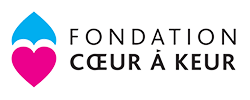- fondationcoeurakeur@gmail.com
- Cotonou, Camp Guezo, Rue 5100
Child abuse in Benin: What the law says
Benin, faced with the realities of child abuse, has put in place a legal arsenal to protect its youngest citizens. The 2015 Children’s Code and Law no. 2006-04 of April 10, 2006 on the prevention and repression of violence against women and children form the foundations of this protection. These legislative texts define abuse as any form of physical, psychological or moral violence, neglect, sexual abuse or economic exploitation. They also cover domestic violence, labor exploitation, abandonment, female genital mutilation and other harmful traditional practices.
Forms and causes of abuse
In Benin, child abuse takes many forms, including physical violence, psychological abuse, economic exploitation and sexual abuse. There are many causes: poverty, ignorance, harmful traditional beliefs, and sometimes stress on parents or guardians. Clinical psychologist Étienne SONOU insists on the need for rigorous support for child victims: “Abuse leaves deep scars on a child’s development, both emotionally and psychologically. Intensive psychological follow-up is crucial to help these children rebuild their lives”, he explains.
Legal and institutional protection mechanisms
Benin’s legislation provides clear reporting and intervention mechanisms. In the event of abuse, anyone – whether victim or witness – can alert social services, the police or specialized NGOs. These organizations are obliged to intervene rapidly to protect the child, including placing him or her in a secure environment if necessary. The law also obliges education and health professionals to report any suspicion of abuse.
Social worker Solange KPADE notes the progress made thanks to awareness-raising campaigns: “Cases of abuse are increasingly rare thanks to effective campaigns that have educated communities about children’s rights and the legal consequences of abuse,” she asserts. Nevertheless, the implementation of these laws faces challenges that sometimes prevent victims from coming forward.
Consequences of abuse and support for victims
The consequences of child abuse are often devastating, affecting children’s physical, psychological and social development. These experiences can lead to long-term mental disorders, learning difficulties and behavioral problems.
To mitigate these impacts, current law requires the establishment of rehabilitation and psychological support programs for child victims. Specialized reception centers exist to support these children in their recovery. The judicial process also includes specific measures to protect child victims, such as the protection of their identity and the possibility of testifying in camera.
Sanctions and inter-institutional collaboration…
The penalties laid down by law against perpetrators of abuse are severe, ranging from prison sentences to substantial fines. These penalties are designed to be dissuasive and to reflect the seriousness of the acts committed. However, the law also provides for the possibility of re-evaluating sentences in the event of a change in behavior demonstrated by convicted offenders.
In addition, social services, schools and NGOs play a central role in preventing and dealing with cases of abuse. These institutions work closely with the judicial authorities to protect children and provide them with adequate legal protection. Benin also has a National Child Protection Policy (PNPE), with an action plan aimed at reducing all forms of exploitation, mistreatment and abuse of children.
Detecting and reporting violence against children is one of the strategic priorities. This is why we have set up a Children’s Helpline (LAE). This is a toll-free number (138) to which any child victim, or anyone witnessing or aware of child abuse, can call to report it. Calls to this line are free of charge from any telephone network.
Statistics and current data…
According to recent data, the prevalence of child abuse in Benin continues to give cause for concern. Studies show that physical violence and sexual abuse are the most common forms of maltreatment. Despite a slight reduction in reported cases thanks to awareness-raising efforts, there is still a long way to go to eradicate this scourge.
Reform proposals and innovations…
To strengthen the legislative and institutional framework, proposals for reform have been put forward. These proposals include better training for those involved in child protection, improving the resources allocated to protection services, and introducing new practices inspired by other countries. These reforms aim to make the fight against child abuse in Benin more effective, by ensuring full protection for victims and deterring potential perpetrators.
Benin’s legislative framework is an essential pillar in the fight against child abuse. Despite the challenges, the combined efforts of the authorities, social institutions and NGOs are beginning to bear fruit. Nevertheless, to guarantee total protection, it is crucial to continue raising awareness, building the capacities of child protection actors, and ensuring rigorous psychological follow-up for victims.

